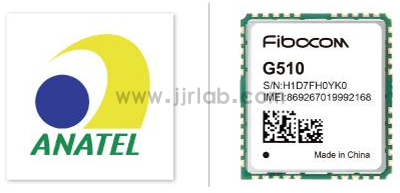
How to Certify Wireless Products for Export to Brazil?
ANATEL, established in 1997, is primarily responsible for approving telecom products to meet the quality, safety standards, and technical functions of regULations. Almost all products that transmit radio frequencies, connect to public telephone networks, or use lithium batteries must be approved by this agency. The certification and approval process ensures that consumers can continue using these products in compliance with all relevant quality and safety regulations.

Certification Categories
Three categories of telecom equipment require mandatory certification:
Type I:
1. Terminal equipment that connects to a Fixed Switched Telephone Service (FSTS) network;
2. Equipment that connects private telecom networks to the FSTS network;
3. Equipment that connects to the FSTS network for the purpose of providing value-added services.
Includes: mobile phones, satellite phones, VoIP phones, mobile phone batteries, mobile phone charging cables, telephone signal cables, modems.
Type II:
Any wireless device not coveRED under Type I, such as low-voltage devices, unlicensed equipment, and antennas.
Includes: TV and radio antennas, receivers, transmitters, wireless networking devices, RF automation devices.
Type III:
Any equipment not covered by Type I or II and regulated by ANATEL's rules and regulations.
Includes: optical fiber cables, cable connectors, mobile network signal transmitters.
Required Documentation
1. Applicant's information (the applicant must be a Brazilian company; if not, JJR LAB can provide local representation services);
2. Manufacturer's ISO 9001 certificate;
3. Portuguese user manual;
4. Technical specifications;
5. Application form;
6. Nameplate;
7. Fixed frequency software.
Certification Process
1. Based on the product information provided by the client, determine the product certification category and sample requirements;
2. Mail the sample to JJR LAB, where pre-testing (EMC, RF sections) will be conducted upon receipt of the sample;
3. If issues are found during the pre-test, communication with the client will be established for adjustments. If the pre-test passes, the sample will be mailed to the local Brazilian laboratory;
4. The local Brazilian testing laboratory will test the sample and issue a test report;
5. The OCD (Certificate Of Conformity issuing body) will issue the CoC certificate;
6. The OCD will submit the CoC certificate and the test report from the local Brazilian laboratory to the government agency ANATEL to apply for the Certificate of Homologation (CoH);
7. ANATEL will issue the CoH certificate;
8. JJR LAB will provide the customer with electronic copies of the test report, CoC, and CoH certificates.
Certificate Validity Period
Certificate validity: Type I - 2 years, Type II - 2 years, Type III - 3 years.
Important Notes
1. All products on ANATEL's published list must be certified;
2. Certificate/authorization holders (importers, manufacturers) must be legally recognized in Brazil;
3. User manuals, installation guides, and warning labels must be in Portuguese. Other documents may be in English;
4. Products exported to Brazil must include the anatel certification mark (as shown below) and the ANATEL certification number (which can be obtained from the CoH certificate).
Advantages of Partnering with JJR LAB for ANATEL Certification
1. JJR LAB works directly with the local Brazilian OCD (CoC certificate issuing body), offering competitive pricing;
2. JJR LAB can conduct pre-testing on customer samples to prevent test failures upon arrival in Brazil, avoiding the need to reship samples or incur re-testing fees;
3. JJR LAB's professional engineers can assist clients in preparing relevant materials. If clients provide testing software, testing engineers can help create English-language SOPs for clients, saving time;
4. In terms of timeline, JJR LAB has established close relationships with the OCD and follows up on the certification process 24/7, ensuring smooth project progression and faster certificate acquisition.
Email:hello@jjrlab.com
Write your message here and send it to us
 European Toy Safety Standard EN 71-20:2025
European Toy Safety Standard EN 71-20:2025
 EN 18031 Certification for Connected Devices on Am
EN 18031 Certification for Connected Devices on Am
 Compliance Guide for Portable Batteries on Amazon
Compliance Guide for Portable Batteries on Amazon
 2026 EU SVHC Candidate List (253 Substances)
2026 EU SVHC Candidate List (253 Substances)
 LFGB Certification Cost and Timeline Guide
LFGB Certification Cost and Timeline Guide
 Bluetooth FCC Test Report
Bluetooth FCC Test Report
 Is FCC Testing Required?
Is FCC Testing Required?
 Where to Find FCC Test Reports
Where to Find FCC Test Reports
Leave us a message
24-hour online customer service at any time to respond, so that you worry!




